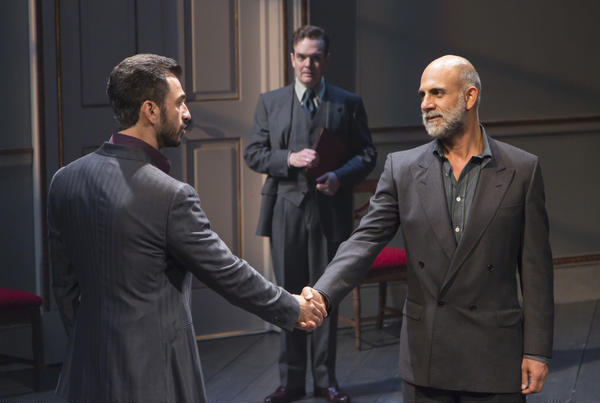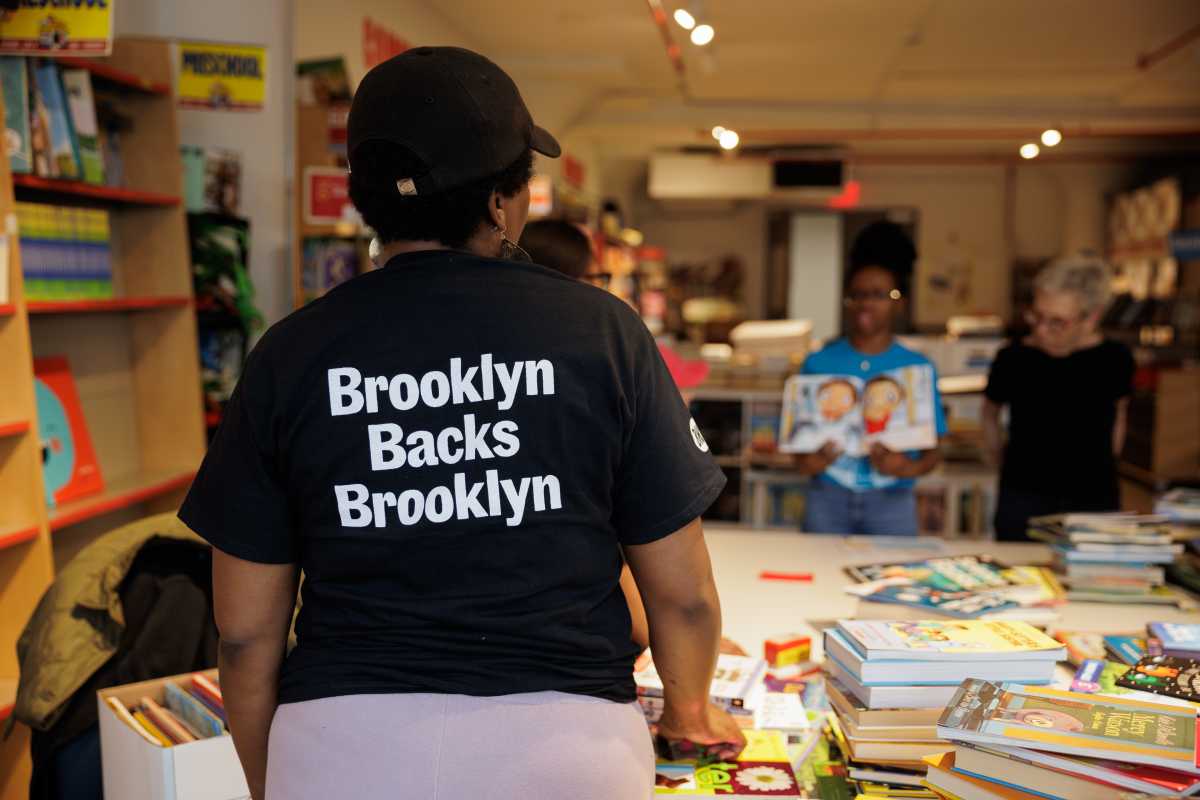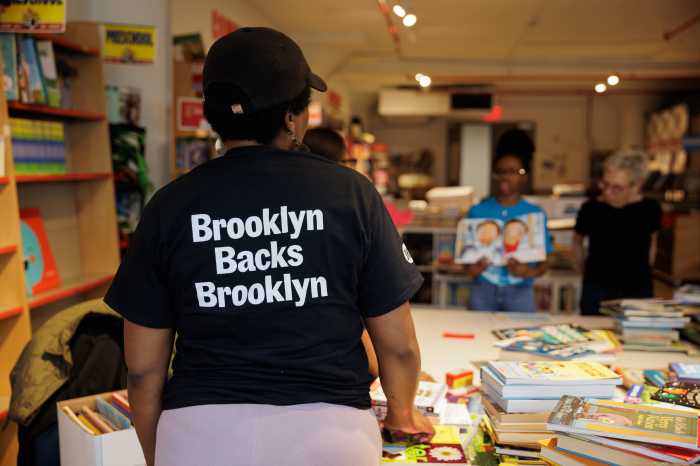
BY CHRISTOPHER BYRNE | If the prospect of sitting through three hours of Mideast political negotiations on a sultry summer night seems daunting, I understand — but many other New Yorkers are not so inhibited. Because it’s very hard to snag a ticket to this fascinating play about the 1993 Oslo Accords — a most unlikely peace negotiated between Israel and Palestine in Norway — in its current run at Lincoln Center’s Mitzi E. Newhouse Theater. And it’s not too early to think about buying tickets to its spring opening at the Broadway-sized Vivian Beaumont, also at Lincoln Center.
This is a show you shouldn’t miss.
On the surface, “Oslo” is the literal story of how a Norwegian diplomat, Terje Rod-Larsen, and his wife, Mona Juul, brought these legendary adversaries together to talk away from the world’s spotlight. The advances, reversals, negotiations, fights, and ultimately agreement that occurred over the course of about 18 months are beautifully chronicled in J.T. Rogers’ script.
This is also a very human story of people who set out to do great things and change the world and must do battle with their histories and identities along the way. It is not an easy peace that is forged but one dependent on a willingness to bend, the need to save face, and the advantages of “constructive ambiguity” in a treaty.
Notwithstanding the seriousness of the subject matter, Rogers writes with great good humor and sustained tension. This is a cloak-and-dagger political thriller — though on a small scale on Michael Yeargan’s economical set — where common ground is found through the common consumption of scotch and waffles. Indeed, it’s Rogers’ ability to make these quotidian touches so effective at illuminating character that makes the sausage-making of diplomacy and the crafting of policy so accessible and the play so fascinating. The events of the play, which were conducted in private and shrouded in secrecy, are punctuated by reminders of the devastating history of violence between Israel and Palestine conveyed through a series of chilling projections. This context makes the moment of agreement among the most compelling theater of recent memory — and the heartbreak that the accords did not hold even more distressing.
Bartlett Sher has directed brilliantly. He remains the master of finding the human center of outsized characters — as he does in the musicals he directs. He is helped by a stellar cast that includes a magnificent performance by Jefferson Mays as Rod-Larsen and a brilliantly understated, grounded, and powerful portrayal of Juul by Jennifer Ehle. They provide a stabilizing, if sometimes appealingly idiosyncratic force against the more dramatic actions of Israeli cabinet member Uri Savir, in a remarkable rock-star performance from Michael Aronov, and Ahmed Qurei, the Palestine Liberation Organization finance minister, given a more restrained but incisive characterization by Anthony Azizi.
Given the current political climate, someone involved in the production of “Butler” might have considered that attempting to stage a comedy about slavery is either tone-deaf, cynical, or both. The play, by Richard Stand, is the story of a runaway slave seeking sanctuary at Fort Monroe in Virginia, right before the start of the Civil War, the day after Virginia seceded from the Union. The story turns on how one General Butler ostensibly saves the slave Shepard Mallory from being returned to his owner in the South. Butler, it turns out, is a lawyer, and he interprets the Articles of War to prevent Shepard from being returned. All very well and good, but the interpretation still turns on Shepard being property, and though Butler is motivated to save Shepard from certain death the tone is all wrong.
Strand imagines the interaction between the two men as a war of wits, with vaudeville style bits, over-the-top slow burns, and comic banter. It’s as offensive to attempt to make light of the real dangers slaves faced trying to get away as it is to romanticize the reality of slavery. As it happens, I saw this production the same day Bill O’Reilly on Fox said that the slaves who built the White House were well fed, as if that possibility mitigated the fact that they were slaves.
Director Joseph Discher has directed this as if it were a Kaufman and Hart play or a tacky sitcom, and the performances match the style. Ames Adamson as Butler is insufferable. He plays the role as if he were in a Looney Tunes cartoon, a cross between Yosemite Sam and Foghorn Leghorn — with due apologies to those comic icons. John G. Williams as Mallory is reduced to a stereotypical wisecracking character. We’re supposed to think he has an irrepressible spirit and can’t help himself, but it’s not believable, particularly when he bares the scars on his back from being whipped. The other two characters, Lieutenant Kelly, Butler’s adjutant played by Benjamin Sterling, and Major Cary, sent for Shepard by his owner and played by David Sitler, exist for the other two to bounce jokes off. Again, pure sitcom drivel.
It’s almost unthinkable that a company could defend mounting a play this insensitive and demeaning in 2016, but, then, a lot of what’s happening around us in today’s world is also unthinkable.
OSLO | Mitzi E. Newhouse Theater, 150 W. 65th St. | Through Aug. 28: Tue., Thu. at 7 p.m.; Wed., Fri.-Sat. at 8 p.m.; Wed., Sat. at 2 p.m.; Sun. at 3 p.m. | Beginning Mar. 23 | Vivian Beaumont Theater, 150 W. 65th St. | Tue.-Sat. at 8 p.m.; Wed., Sat. at 2 p.m.; Sun. at 3 p.m. | $107 at Newhouse; $77-$147 at Beaumont at telecharge.com or 212-239-6200 | Three hrs., with two intermissions
BUTLER | 59E59 Theaters, 59 E. 59th St. | Through Aug. 28: Tue-Thu. at 7 p.m. ; Fri.-Sat. at 8 p.m.; Sat. at 2 p.m.; Sun. at 3 p.m. | $25-$70 at ticketcentral.com or 212-279-4200 | Two hrs., with intermission



































